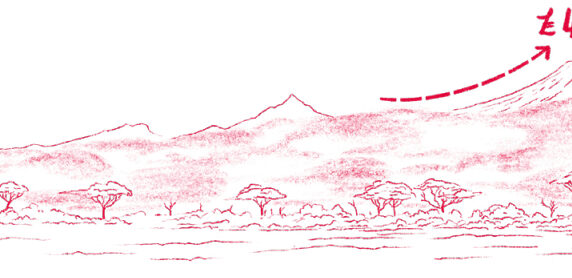Overlooked ways to build trust in an NGO team
‘Teamwork makes the dream work’. It’s a cliché, but for the vision-led work of an NGO, it’s also a fact.
The burgeoning academic literature, coupled with research and experience in our work, says as much. Trust and collegial relationships enhance the effectiveness of an NGO’s work, reduce staff stress and sickness, and cut financial waste. Ultimately, the culture of an organisation is a key predictor of the efficacy and efficiency of an organisation. Teamwork really does make the dream work.
But in the humanitarian space, nurturing a healthy, happy team can be made harder by the nature of the work. For example, factors that often undermine employee well-being – long hours, high workloads, short timeframes – are all part and parcel of responding to a humanitarian crisis. They cannot be easily reduced or eliminated.
As specialists in psychosocial well-being, leadership, and organisational culture, we work to help NGOs create thriving work environments, and resilient cultures, and achieve their goals. The good news we love to share with them is that a team can thrive even in the most challenging of circumstances.
However, this depends on the quality of working relationships – especially ones that are bound together by trust. Based on our work with NGOs around the world, some of the crucial ways that trust can be built in a team are sometimes overlooked to ‘get the job done’. Here are some examples.
What can leaders do?
It all starts with leadership, and a leadership style that is consultative and compassionate is a key predictor of the quality of relationships at work. This means giving clear direction but seeking input from key team members about implementation. These leaders make an overall project aim clear (e.g. to provide shelter for a given population in an area) and then consult key people about how to do it. These leaders also know their team well and share in their challenges and circumstances. They take time to regularly acknowledge others, which can instil a sense of pride and belonging, as well as trust.
But building trust goes beyond simply how workplace relationships are conducted – it needs to be built into the systems, policies, structures and recruitment processes of the organisation. For a thorough understanding of workplace relationships, leadership might consider an independent review of an NGO’s culture – with focus groups, document reviews, staff surveys and interviews – to help create a workplace reality that matches the vision.
What can managers do?
A recurring challenge we’ve noticed in the NGO sector is that managers are often recruited based on their technical skills rather than their ability to effectively lead and manage people. A global study found that 50% of people have left a job to get away from a manager. In other words, we need better managers!
If a manager better understands both themself and others, then they are more able to connect with others and nurture trusting relationships. Interestingly, we’ve noticed that more of our clients recognise this, and make use of one-on-one coaching for managers and group training to help them develop the soft skills that can be otherwise hard to develop.
A good manager also needs the courage to have difficult conversations. Avoiding them can undermine team dynamics. But if they can tackle challenges head-on, it will boost confidence in their management and empower the team to have productive, respectful and impactful conversations.
What everyone can do
Although management and leadership need to take the lead, everyone has a role to play in building trust. A good way to start is to be vulnerable with each other. This can feel like a very unnatural thing to do at work – especially if it’s not embodied by leadership – but starting small can help. Small opportunities to be vulnerable present themselves at work every day, such as sharing a personal challenge that’s impacting your work or taking responsibility when something goes wrong. When you do this, it helps others do the same. This encourages people to relax, form better work relationships and trust one another.
Curiosity and good listening skills can also help develop trust. A curious person asks questions, assumes the best in others, and believes that through their questions they can get at something helpful that is not currently being seen. To do this, it’s important to slow down. Functioning at the fast pace to which many of us become accustomed makes us less likely to be curious about others and more likely to jump to unfair conclusions about them.
Trust in a team or organisation is not something you will ever ‘achieve’. It needs to be continually worked on for it to remain part of the fabric of your culture – something that endures independently of the individual staff who might come and go. But the effort is always worth it.
Find out more about Thrive Worldwide here.
Category
News & ViewsThemes
HR and careers



